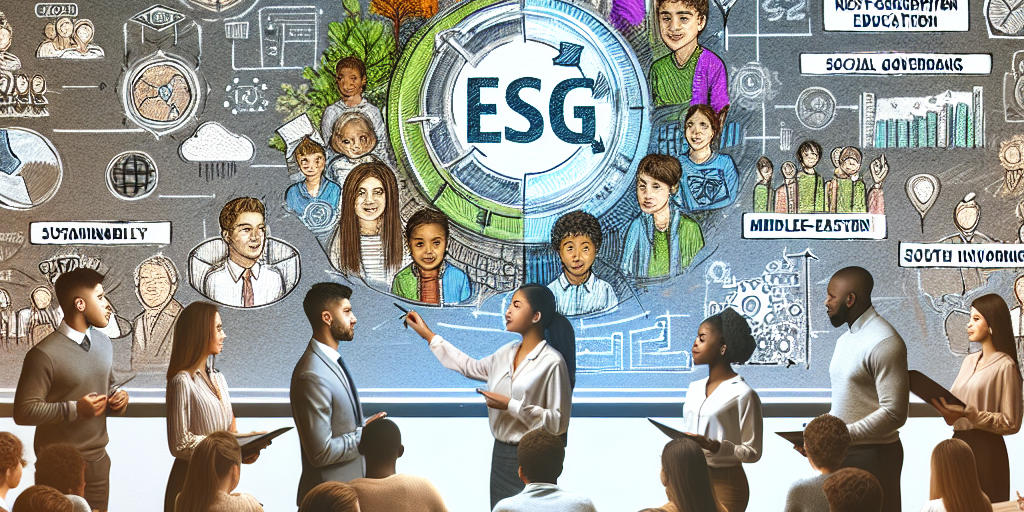In an increasingly interconnected world, the next generation of leaders faces a challenging landscape defined by climate change, social inequality, and rapid technological advancement. To empower these future leaders, educational systems must evolve, embracing a holistic approach that integrates Environmental, Social, and Governance (ESG) principles alongside impact investing. By intertwining these concepts into next-gen education, we can cultivate well-rounded individuals who are not only capable but also committed to creating a sustainable and equitable future.
Understanding ESG and Impact Investing
Before delving into their educational implications, it’s essential to define ESG and impact investing. ESG refers to the three central factors used to measure the sustainability and societal impact of an investment in a company or business. Environmental criteria consider how a company performs as a steward of nature, social criteria examine how it manages relationships with employees, suppliers, customers, and the communities where it operates, and governance deals with a company’s leadership, executive pay, audits, and shareholder rights.
Impact investing, on the other hand, focuses on investments made with the intention of generating positive, measurable social and environmental impact alongside a financial return. This practice encourages businesses to align profitability with purpose.
The Intersection of ESG, Impact Investing, and Education
Cultivating Skills in ESG Principles
To ensure that future leaders are effective in tackling pressing global issues, education systems must prioritize the teaching of ESG principles. Curriculums can be designed to include sustainability studies, corporate social responsibility (CSR), and ethical governance. Students can engage in projects that assess companies through the ESG lens, analyze their practices, and debate how improvements can be made.
Additionally, experiential learning opportunities, such as partnerships with organizations focused on sustainability, allow students to apply their knowledge in real-world contexts. By helping students understand the significance of ESG, we prepare them not only to make informed career choices but also to influence the companies for which they work.
Embracing Impact Investing in Education
Impact investing can also be pivotal in reshaping the educational landscape. Financial resources allocated toward educational institutions can be directed to programs that prioritize social impact. For instance, scholarships for underrepresented communities or funding for initiatives that promote green technologies can help create a more equitable educational environment.
Educational institutions themselves can practice impact investing by developing partnerships with businesses that prioritize ESG principles. When schools invest in companies that seek to generate social or environmental benefits, they can teach students about the importance of responsible investing while fostering a sense of global citizenship.
Fostering Entrepreneurial Mindsets
As we prepare future leaders, cultivating entrepreneurial skills is crucial. By combining ESG education with impact investing, students can learn how to start and operate businesses that are not just financially viable but also socially responsible. Business incubators in educational institutions can focus on developing startups that address local social and environmental issues, instilling a sense of responsibility and innovation in students.
Such practical applications can inspire students to think creatively about solutions, encouraging them to lead initiatives that reflect ethical values and contribute positively to society.
Promoting Diversity, Equity, and Inclusion
ESG frameworks inherently promote diversity, equity, and inclusion (DEI), as they emphasize stakeholder engagement and social responsibility. Education systems that prioritize DEI create inclusive environments where students from diverse backgrounds can thrive.
Integrating ESG principles into educational contexts empowers marginalized voices and encourages collaboration among students of varied perspectives. This diversity enhances creative problem-solving, a quality imperative in addressing global challenges. By fostering inclusive, equitable environments through ESG-centric education, we prepare leaders who value collaboration and embrace diversity in their decision-making processes.
Bringing it All Together
The shift towards ESG and impact investing in next-gen education is not merely a trend but a necessity. For future leaders to navigate the complexities of a rapidly changing world, their education must imbue them with the values, skills, and mindset required to leverage their influence for good.
Through collaborative partnerships, innovative curriculums, and a focus on ethical practices, educators can significantly impact how young leaders view their responsibilities in a global context. By embedding ESG principles and impact investing into the educational narrative, we build the foundation for a generation that is ready, willing, and able to lead—transforming challenges into opportunities for sustainable growth and societal advancement.
As we invest in education today, we invest in a brighter tomorrow, paving the way for compassionate, responsible leaders who will champion sustainability and equity for generations to come.










